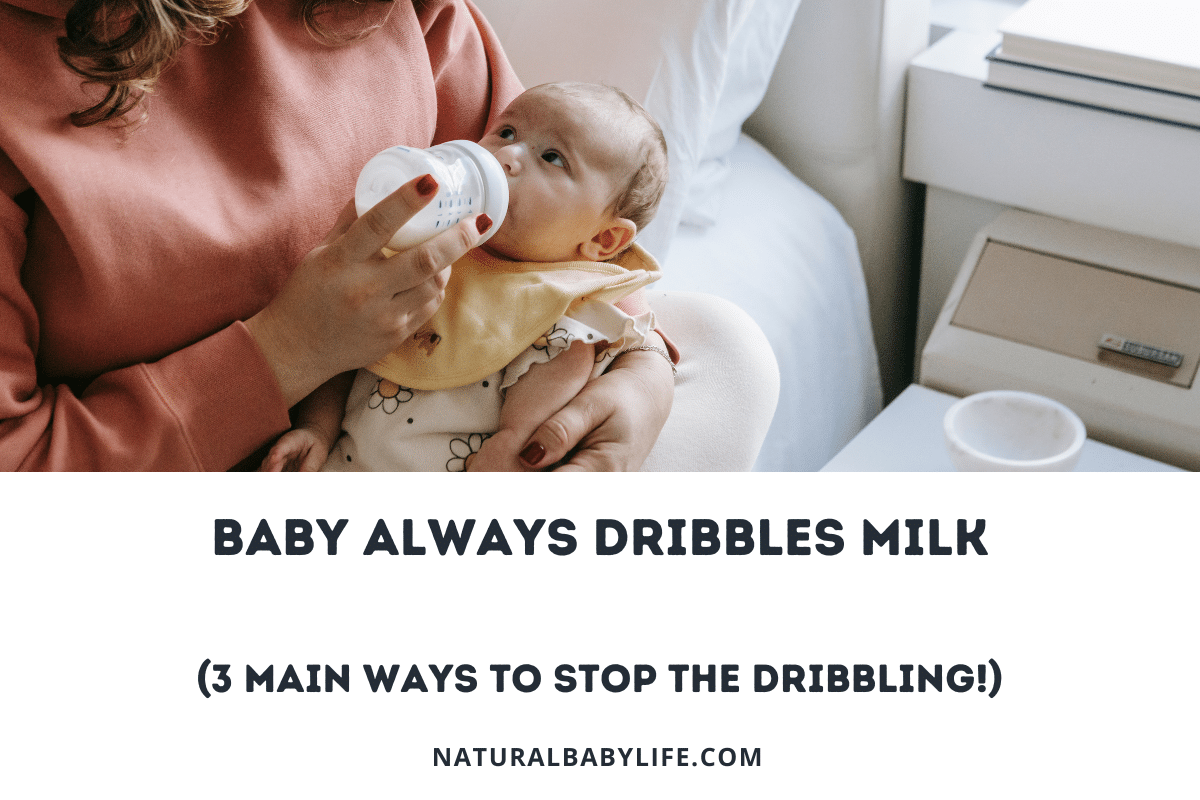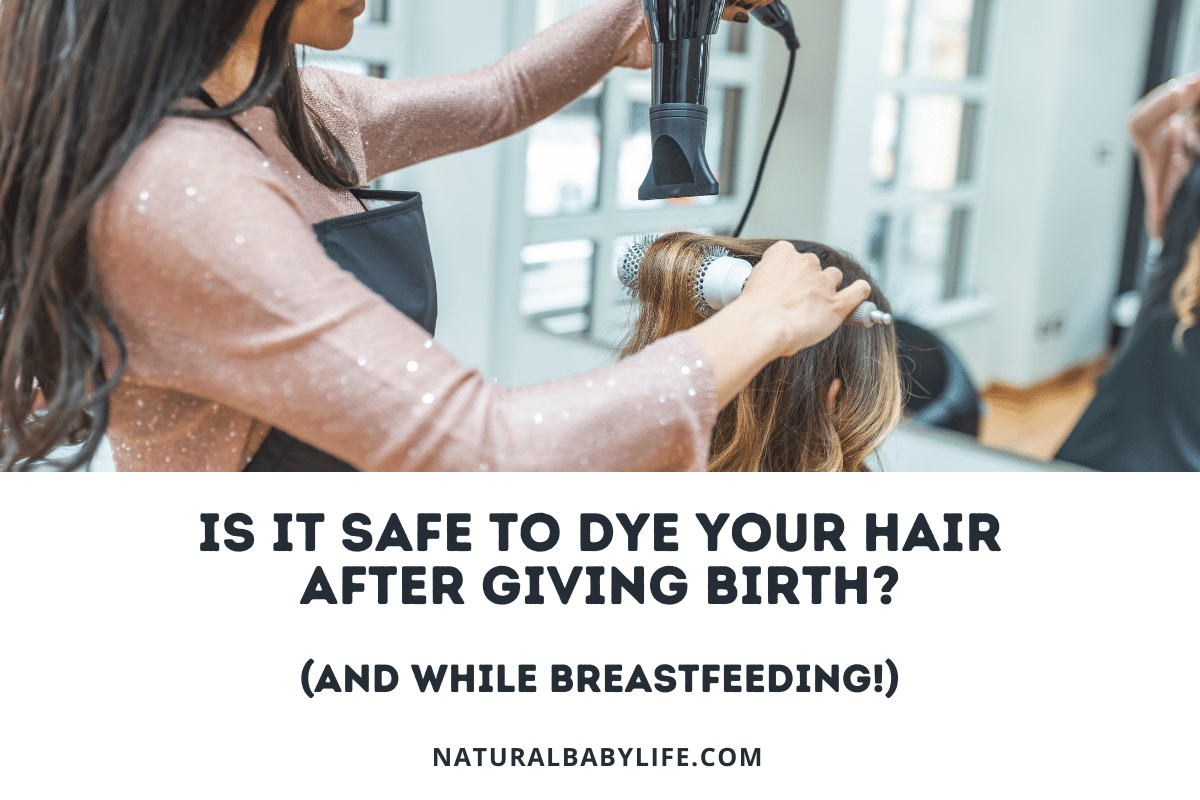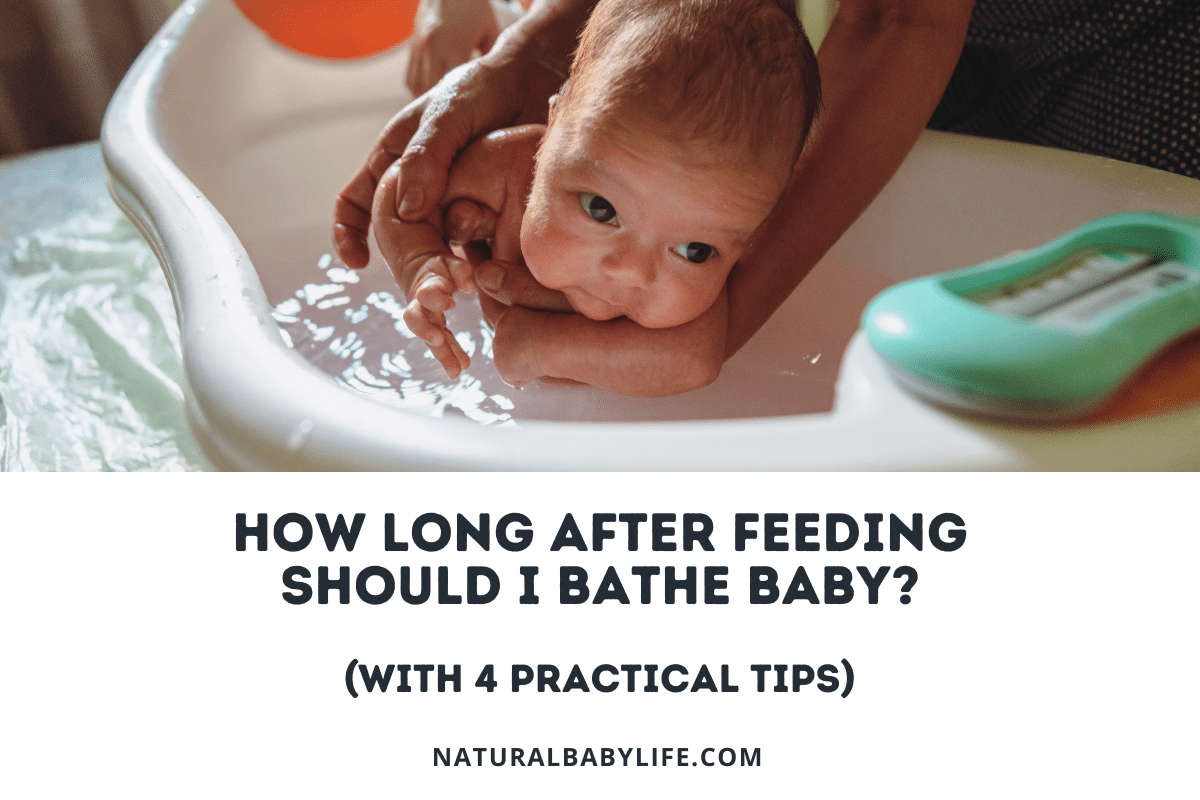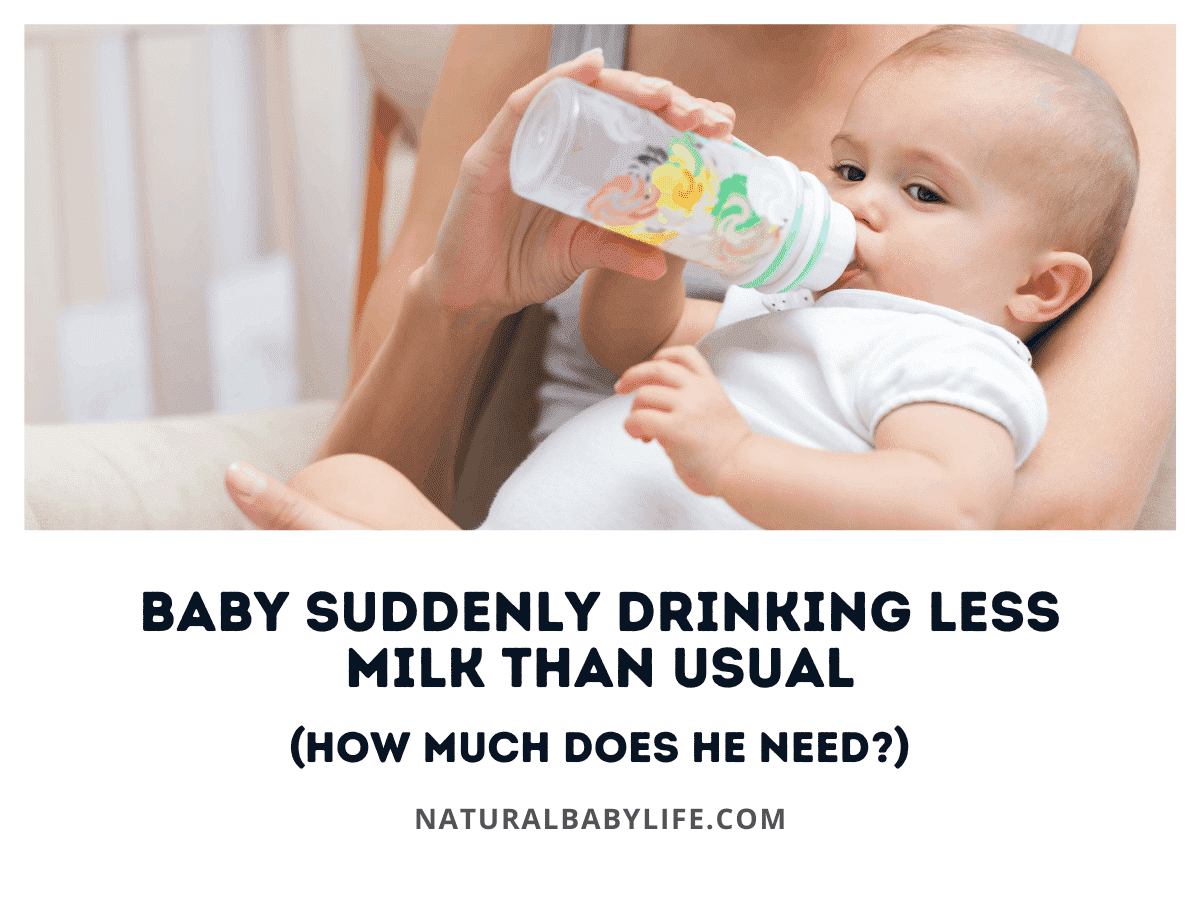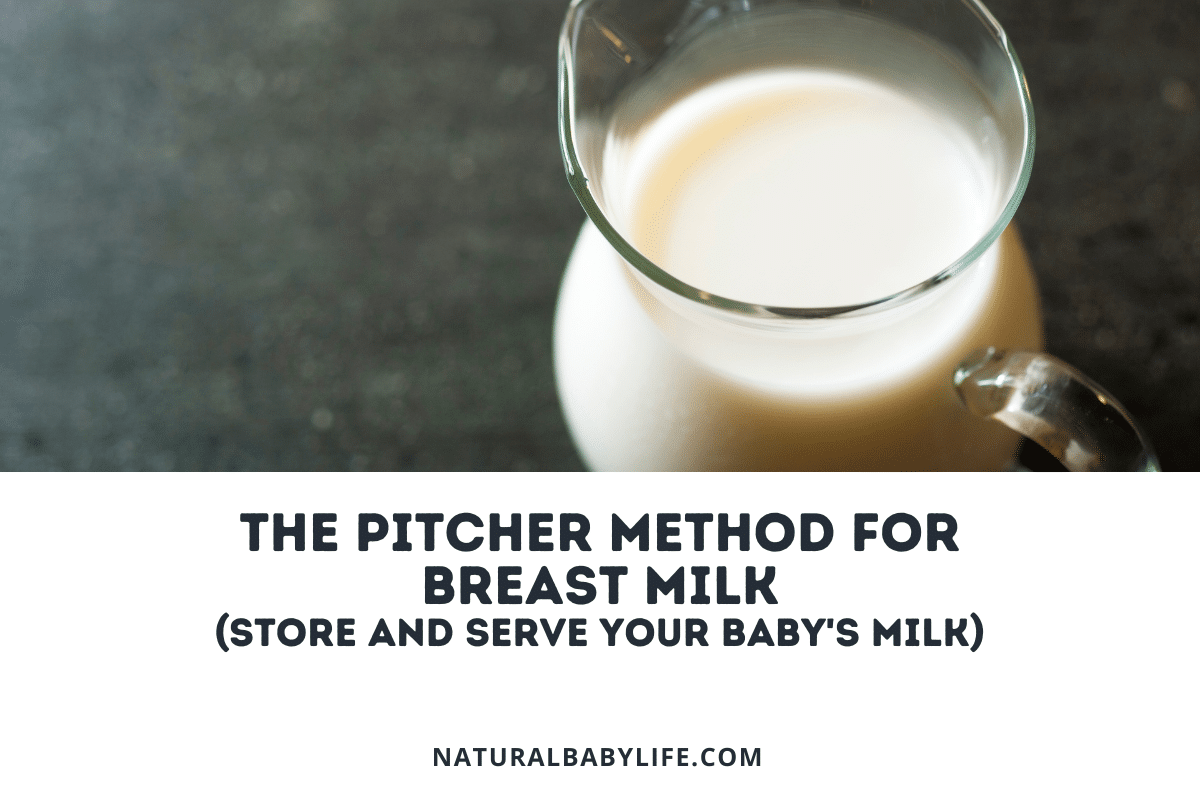There is a lot of pressure on mothers to breastfeed their babies because it is so beneficial for their health but it can be difficult to determine the best time to stop breastfeeding and the safest
Groups such as the Global Breastfeeding Collective, the World Health Organization, and the American Academy of Pediatrics recommend that babies are exclusively breastfed until the age of 6 months and then continued to be breastfed alongside appropriate solid foods until the age of two years or beyond during a slow process of natural weaning.
If you think it’s time to start weaning you may be struggling with the when and how to stop nursing easily and safely.
Table of Contents
When to stop breastfeeding
Breastfeeding is the gold standard when it comes to infant health, nutrition, and well-being. In the US and internationally, organizations and movements have been created to support the vision in which all mothers have the support they need to breastfeed successfully for the benefits of both mother and child.
There’s no concrete time limit on nursing, however, there are minimum recommendations for how long a baby should nurse. It’s recommended that babies are breastfed exclusively for up to 6 months and then continued in addition to a healthy diet of age-appropriate foods for a year or longer. Statistics show that generally most US children are breastfed for at least 6 months in some capacity with a sharp decline after the 1-year mark.
In an effort to encourage and increase breastfeeding rates, worldwide health organizations like the Global Breastfeeding Collective, have undertaken efforts to educate, increase awareness, and promote nursing from birth to age two years. Currently, in the US approximately 58% of babies are still breastfeeding at 6 months of age while only 35% of children 12-months old are still nursing.
Currently, a global consensus on the benefits of nursing (for both mother and child) concludes that ideally all babies should be breastfed from birth (initiated within the first hour) to 6 months exclusively. After 6 months, a baby should continue to nurse for as long as up to two years along with being fed a diet of healthy, age-appropriate foods.
As many as 60% of women choose to discontinue breastfeeding before they intended due to personal, health, and environmental factors including:
- Issues with the act of nursing like latch or lactation issues
- Concerns with infant nutrition
- Taking certain medications while breastfeeding
- Unaccommodating work policies or lack of parental leave
- Cultural norms or lack of support
- Unhelpful hospital practices or policies
While there is a recommended minimum amount of time you should breastfeed, there is no time-limit on nursing, and it can be continued for as long as comfortable for you and your baby. There is no known age at which breastmilk becomes nutritionally insignificant for a child. But it is recommended that by 6 months of age children begin eating a balanced diet of solid foods in addition to breastfeeding for up to one year, and beyond if desired.
The choice of when to wean your baby can be a difficult one as nursing is not just a matter of nutrition, but of emotion too. What many mothers don’t realize, though, is that most often the act of weaning happens overtime without much conscious effort and is actually started as soon as you begin to feed baby foods other than breastmilk.
Regardless of when you stop breastfeeding, it does matter how you continue to nourish your baby through milk or infant formula. The act of weaning should be done over a period of several weeks; a gradual decrease allows time for your body to adjust as well as give your child time to get used to either cow’s milk, milk alternative, or infant formula. If your child is under 12 months, then continue to supplement your child’s diet with formula. If your child is over 12 months of age, then begin to offer cow’s milk (or milk alternatives).
What is extended breastfeeding?
Extended breastfeeding is the continuation of nursing beyond the 12-24-month mark. Unfortunately, in some Western countries nursing is considered taboo and oftentimes women who choose to continue nursing beyond 12 months will do so in a secretive manner called “closet nursing” making it difficult to gather accurate data about extended nursing prevalence. It’s estimated that by 18 months, approximately 14% of children in the US are still nursing.
Breastfeeding past infancy does have many benefits:
- Nutritional Benefits: Despite the lack of studies done on breastfeeding into the toddler years, there is no exact date at which breastmilk becomes nutritionally unbeneficial for a child. Available information indicates that breastfeeding continues to provide nutrition and immune support for as long as it’s done.
- Intellectual Gains: Cognitive achievements for those children that breastfed longest were shown to be higher (IQ test and grades).
- Social Development: Breastfeeding is also shown to help foster independence, relieve stress, and promote healthy social development in children.
According to the American Academy of Pediatrics, “Breastfeeding should be continued for at least the first year of life and beyond for as long as mutually desired by mother and child… Increased duration of breastfeeding confers significant health and developmental benefits for the child and the mother… There is no upper limit to the duration of breastfeeding and no evidence of psychologic or developmental harm from breastfeeding into the third year of life or longer.”
How long does the average mom breastfeed?
In cultures where there is no pressure to wean, children usually stop nursing between the ages of 2 ½ to 7 years old. The rate at which babies are nursed in the US varies widely based on several socioeconomic and demographic factors.
Most babies in the United States are not exclusively breastfed nor are they nursed for as long as is recommended. There are many reasons contributing to this disparity when compared to other countries, like Sweden or Uruguay, where nearly all babies are breastfed. Cultural, economic, political, and personal influences are all part of successful breastfeeding.
According to the CDC, nursing rates as of 2017 in the United States show:
- 58% are still nursing at 6 months of age
- 25% of babies of exclusively nursed through 6 months of age
- 35% of babies are still nursing at 12 months
- Before 6 months, 36% of babies receive baby formula supplement
- By 18 months, 14% of babies are still nursing
In some regions in the US, breastfeeding rates are higher than in others. For instance, infants in the Southeast are less likely to be breastfed than those in the Pacific Northwest. Cultural, demographic, and socioeconomic differences also show variations in nursing prevalence:
- Young mothers (aged 20-29) are less likely to breastfeed than those 30 years or older.
- Infants in families receiving supplemental nutrition benefits or WIC are less likely to be breastfed
- Fewer Black infants are breastfed than White or Hispanic infants
Is there a breastfeeding age limit law?
There is no age restriction on breastfeeding. For more information on your state’s laws regarding breastfeeding (like workplace accommodations or public allowances) click here.
When should you stop breastfeeding at night?
Sleeping through the night is an important developmental milestone that many parents spend, well, sleepless nights desperately waiting for! Like all milestones, children will reach them at their own time when they’re ready, but if you wish to move the process along, here are some things you can do to help with night weaning:
- Eliminate any discomforts baby may be experiencing. Baby may be teething, uncomfortable (too hot or cold), sick or experiencing other discomforts like reflux or other digestive issues, or experiencing other milestones associated with interrupted sleep.
- Maximize daytime nursing sessions. To help baby fill their bellies and meet their need for comfort and closeness during the day, minimize distractions while baby is nursing. Try nursing more frequently during the day or nurse more in the evening hours before bedtime.
- Encourage healthy sleep. Try dream feeding baby (waking them to feed even after you’ve put them down at night) before you head to bed in an attempt to lengthen stretches of nighttime sleep. Be sure to start bedtime before baby becomes overtired.
Tips for night weaning toddlers:
- Have Dad help! If you suspect your older child is simply waking during the night for comfort more for hunger, then have Dad head into the bedroom to offer comfort and soothe your child back to sleep.
- Offer Other Comforts. Try spending more time simply holding or cuddling your toddler during the day so that they aren’t missing quality time with you. Other ways to comfort a child might include offering them a drink of water, a back rub or patting, and simply rocking for a minute or two before settling them back into bed.
- Say “No.” Let your child know that nursing is only done during the day. While this concept may be difficult to grasp at first, over time your child will come to accept that nighttime is for sleeping, not nursing.
Is it okay to stop breastfeeding? (I feel guilty)
If there is one thing for certain in motherhood, it’s that guilt will be part of every tough decision you make. Weaning, or stopping breastfeeding earlier than you intended, can cause major guilt and, sometimes, even depression. Understanding the natural weaning process and making informed decisions about the health of you and your child can help alleviate guilt or sadness associated with stopping breastfeeding.
While the research on post-weaning depression or mood changes is scant, it’s suggested that these emotional symptoms experienced by moms during and after weaning are due to the drop in the hormones prolactin and oxytocin. Both of these hormones are triggered by the physical act of breastfeeding and contribute to “feel good” sensations in our brains. Oxytocin is sometimes referred to as the “love hormone” because of the signals it sends to our brains.
Experts recommend that if you choose to begin weaning your child before they naturally begin to do it on their own, that you do so slowly to give time for your body and your baby to adjust to the changes. Suddenly stopping nursing can be emotionally and physically upsetting for both you and your baby.
There’s no need to feel guilty when you’re following your baby’s cues. Weaning is oftentimes a process your child will start to do on their own. Surprised? Some experts consider the act of beginning solid foods as a step forward in weaning your child. As baby ages nursing sessions will naturally begin to happen less frequently because baby is busy eating new foods, playing, exploring, and practicing new skills.
Stopping breastfeeding before baby weans naturally
While the general consensus is that breastfeeding should be done for a minimum of 6 months exclusively some women may choose to discontinue breastfeeding prior to that, or soon after, for numerous reasons that may include difficulty or pain, unsupportive familial or workplace circumstances, societal pressure, or health reasons-like medication or other conditions. The CDC shares that 60% of women discontinue breastfeeding before they intend.
If you’re struggling with breastfeeding, whether due to discomfort, lack of support, or for any other reason, be sure to reach out to your doctor or pediatrician for help and resources so that you can continue to nurse your baby for as long as you’d like. The more information you have, the better you’ll feel about the decision you make.
If you do make the choice to discontinue breastfeeding earlier than you intended, it’s important to work with your child’s doctor to make an informed choice about how to continue to nourish your child with either baby formula, cow’s milk, or milk substitutes (depending on age).
Are there any negative side effects if you stop breastfeeding?
Remember that breastfeeding is a choice you’re making for the health of your child and nursing is the most ideal way to nourish your child’s body in the early years. It’s recommended that a baby be exclusively breastfed for the first 6 months of life. Beyond that age, it’s recommended to continue nursing until up to two years, or as long as is desired, in addition to a healthy diet.
Babies who breastfeed are provided unmatched benefits when it comes to health:
- Antibodies that keep baby healthy
- Breastfeeding lowers the risk of asthma and allergies
- Fewer ear infections
- Fewer respiratory illnesses
- Less frequency of doctor visits
- Higher IQ scores
- Strong parent-child bond, healthy social development
- Healthier weight gain and less occurrence of obesity
- Prevents SIDS
- Lowers risk of diabetes and certain cancers
If a mother chooses to stop nursing early, a child who has breastfed even for a short time still can reap some benefits of nursing. Babies who are breastfed for a few days receive colostrum, which has powerful antibodies providing your baby with their first “superfood.” Nursing for 3-4 weeks will have helped baby through a critical time, reducing the need for hospital visits, and also reduces the risk of SIDS.
It’s not just baby that receives all the goodness from nursing!
Mothers who breastfeed also see health benefits such as:
- Helps promote healthy weight post-pregnancy
- Increases “feel good” hormones like oxytocin, which also helps reduce uterine bleeding after birth
- Lowers risk of osteoporosis
- Lowers risk of ovarian and breast cancer
- Saves time and money
Stopping breastfeeding has an impact on both mother and child emotionally and physically. The ideal way to wean baby is to do so slowly so that the transition is not jarring, which, for mom especially, can be painful. If not done so properly, weaning can lead to difficult or painful conditions like mastitis, engorged breasts, clogged ducts and even depression.
How to stop breastfeeding
Stopping breastfeeding or weaning your baby should be done slowly over a period of several weeks giving time for both mother and child to adjust physically and emotionally to the change. There are several ways a mother can go about the process of weaning gently and gradually to help the child transition and also prevent pain and discomfort for mom.
A few techniques that are both gradual and gentle can include:
- Don’t Offer, Don’t Refuse: This technique involves mom no longer initiating nursing during routine feeding times, but also not refusing a child’s desire to nurse. This allows for a gradual stepping down of nursing sessions without a lot of fuss.
- Dropping Feedings: If mom wants to make a conscious effort to begin eliminating nursing, then a recommended tactic is to begin slowly dropping nursing sessions from the daily routine. It’s advised that one nursing session each week be eliminated from a 24-hr period. This is another gradual approach that helps lessen discomfort for mom as it allows her body to adjust supply slowly.
- Changing Routine: Changing things up when it comes to baby’s routine can also help reduce the amount of nursing baby does. For example, being out and about more can help distract baby from their desire to nurse.
Other tips and tricks can include distracting baby from nursing by diverting their attention to something else, shortening the nursing sessions, starting with night weaning, and for older kids rewards can oftentimes be a helpful tool. Choosing which sessions to eliminate can also make a difference in weaning, like dropping nap/nighttime feeds last.
Don’t forget to celebrate your child’s achievement. If they’re old enough, recognizing that they’ve overcome a difficult transition is important and fun!
Can you just stop breastfeeding cold turkey?
It is not recommended to stop nursing cold turkey. This can cause painful conditions, like mastitis, which is an infection of the breast that, when left untreated or allowed to worsen, can result in surgical drainage or a hospital stay.
How long does it take to dry up breast milk?
It depends. It can take as little as a few days (depending on how frequently you were nursing your child) up to a few months. It’s not uncommon to continue to leak or experience “let down” sensations months after you’ve stopped nursing.
Is it painful to stop breastfeeding?
While you may feel discomfort at some point while weaning your child, doing so gradually can help minimize pain. Generally, a painful weaning experience can be caused by engorgement of the breasts due to weaning too early or quickly.
To minimize pain during weaning, try hand-expressing or pumping just enough milk to relieve pressure and pain in the breasts, use an OTC pain reliever to minimize discomfort.
How do you stop breastfeeding without getting mastitis?
Mastitis is an infection in the breast that is usually caused by a clogged duct or bacteria entering the breast. Oftentimes during weaning, milk that is not emptied from the breast can become a prime breeding ground for bacteria leading to pain and prolonged discomfort.
To prevent mastitis, weaning should be done gradually to prevent engorgement and you should attempt to empty your breasts partially to help alleviate pressure.
Mastitis is treated easily with antibiotics and pain medications.
Breastfeeding is a complicated, sometimes painful, but beneficial journey between mother and child. But just as important as how you begin and continue that journey is how you end it. Be sure that you make well-informed choices on nourishing your child during their first years to help give you confidence in your decisions and offer your baby the healthiest start you can.
For additional help and advice on weaning or stopping breastfeeding, be sure to speak with your doctor and pediatrician, and seek out a local lactation expert. A great online resource for all things nursing is the La Leche League which, in addition to having a great digital platform, also offers local groups you can connect for support.



